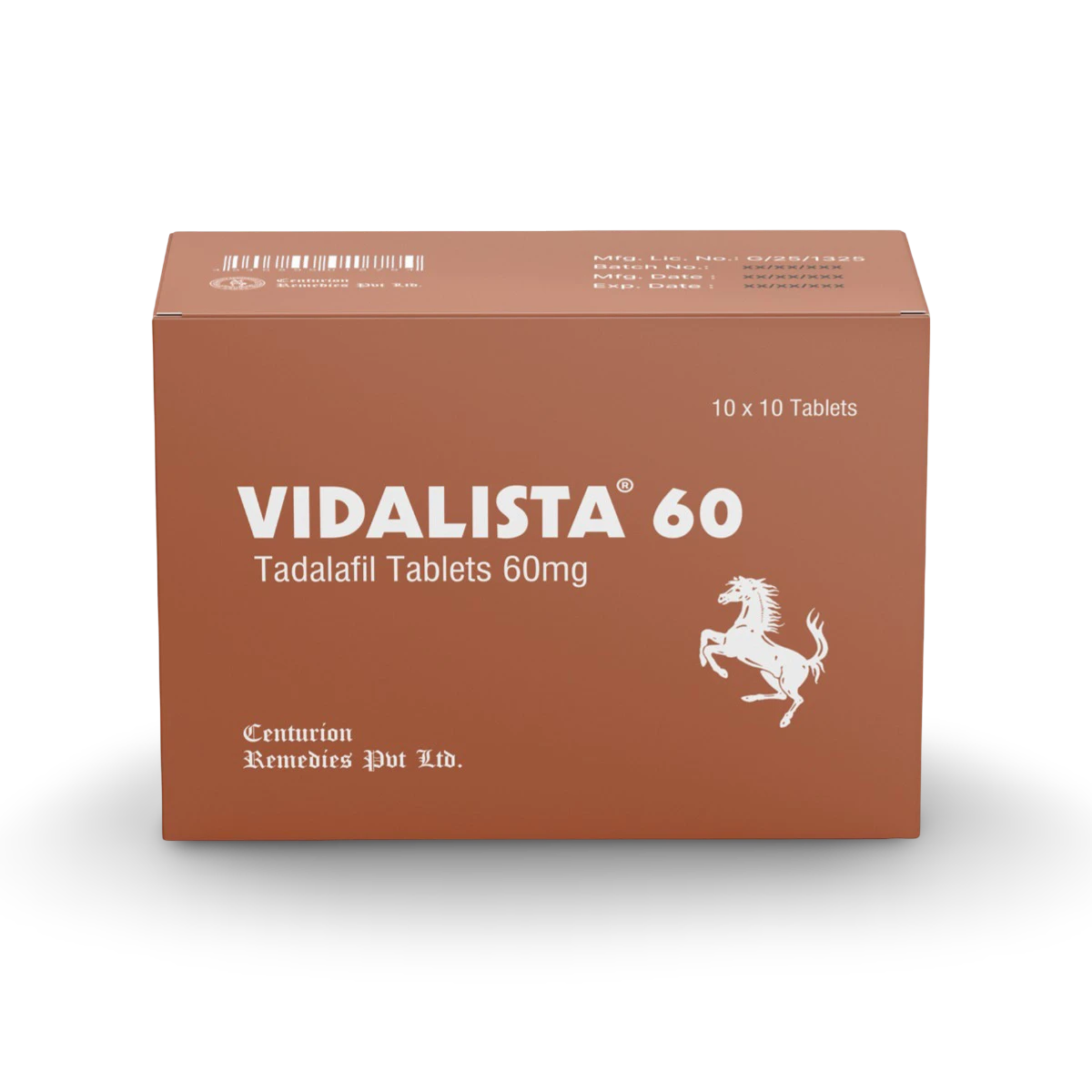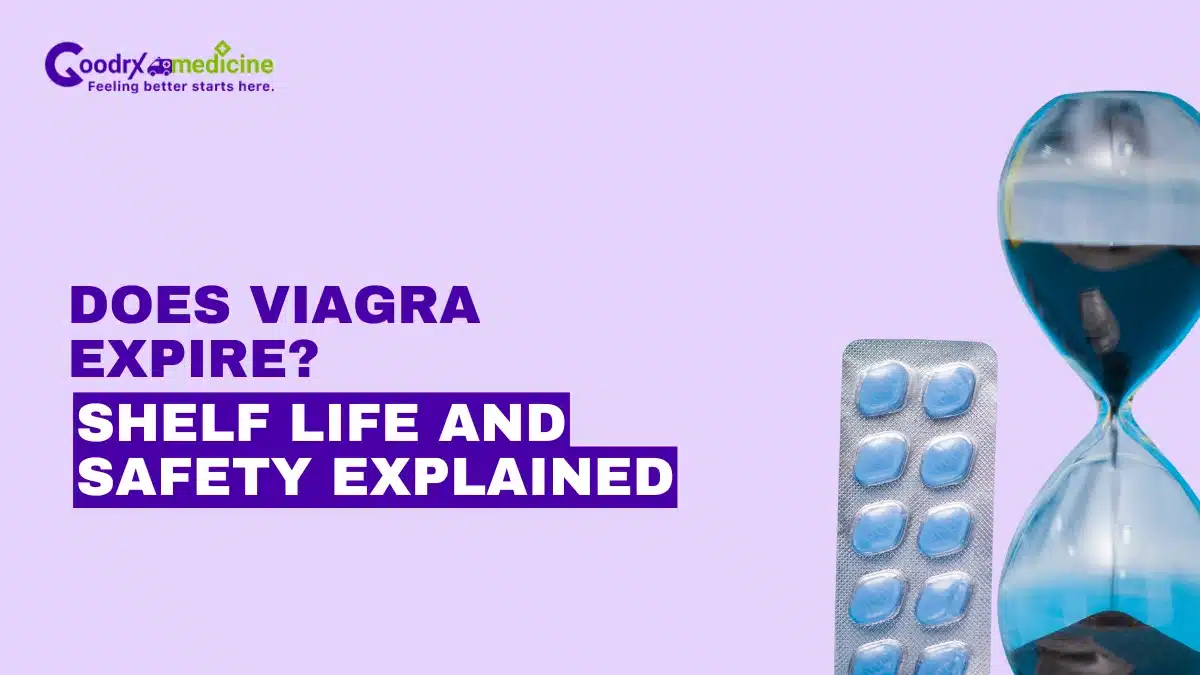Viagra has been a trusted solution for millions of men seeking to improve sexual performance and confidence. However, like all medications, it doesn’t remain at full strength over time. Viagra can expire, and its chemical stability and effectiveness may gradually decline.
As Viagra ages, it may lose potency and reliability, and once it has expired, it should not be used. Degraded tablets might no longer deliver the intended effect and could pose safety risks.
This article looks into what happens as Viagra reaches or passes its expiry, signs to watch for, and essential tips for keeping it effective, so read on.
Does Viagra actually expire?
Yes, Viagra does expire, and the expiration date, usually 2 to 3 years after manufacture, indicates how long the medication is guaranteed to remain safe and effective. This date represents the period during which the manufacturer guarantees the medication maintains its full potency and safety profile.
The active ingredient, Sildenafil, begins breaking down chemically after this date. The FDA requires manufacturers to test medications for stability and effectiveness up to their labeled expiration dates.
Generic Viagra containing Sildenafil follows the same expiration principles as the brand version. Both degrade over time when exposed to moisture, heat, or light.
Save up to 90% on your medicine bills

Cenforce 100 mg

Cenforce 200 mg

Kamagra Oral Jelly Rx 100 mg

Vidalista 60 mg
Viagra shelf life
Viagra’s shelf life (storage duration) typically extends 2 years from the date of manufacture when stored under proper conditions. However, this timeline can vary depending on factors such as temperature changes, moisture exposure, and how well the medication is protected in its original packaging.
It’s important to understand that shelf life and expiration date are different concepts. Shelf life is the period a medicine is expected to remain effective when stored correctly, while the expiration date is the final point after which the manufacturer no longer guarantees its safety or full strength.
Several factors can shorten or occasionally extend how long your medication remains effective, including:
- Temperature fluctuations: Extreme heat or cold accelerates chemical breakdown.
- Moisture exposure: Bathroom storage (a common mistake) introduces humidity that degrades tablets.
- Light exposure: Direct sunlight or bright artificial light can compromise the medication’s molecular structure.
- Original packaging: Pills removed from their original container lose protective barriers against environmental factors.
The expiration date marks the point where the manufacturer can no longer guarantee quality and effectiveness. After expiration, the potency of Sildenafil may decrease, meaning the medication might not work as intended.
Why you shouldn’t use expired Viagra
Using expired Viagra might seem like a cost-saving idea, but the risks are far greater than any potential benefit, such as:
- Reduced effectiveness: The primary concern is decreased potency; expired Viagra may not work. You might experience no improvement in erectile function, defeating the medication’s entire purpose.
- Unpredictable side effects: As Sildenafil deteriorates, it can form new chemical substances, which may lead to unforeseen reactions or side effects. Using medication past its expiration date introduces unnecessary uncertainty into your treatment.
- False sense of security: Relying on expired medication can cause unnecessary anxiety or relationship stress when the real issue is simply using degraded pills.
- Wasted money: If it doesn’t work, you’ll need to purchase fresh medication anyway, making the expired pills a complete waste.
- Medical complications: For men with underlying cardiovascular diseases, ineffective ED medication could mask symptoms requiring immediate medical attention.
What happens after Viagra expires
Expired medical products like Viagra can be less effective or risky due to the changes in chemical composition or a decrease in strength. Viagra pills can undergo these degradations in several ways:
- Color changes: Tablets may yellow or develop brown spots.
- Texture alterations: Pills might become harder, crumbly, or show surface cracks.
- Odor differences: A vinegar-like or unusual smell indicates chemical breakdown.
- Coating damage: The film coating may separate or appear patchy.
Beyond physical changes, the medication’s effectiveness gradually declines. The effectiveness becomes unpredictable. The degree of potency loss varies; one expired pill might retain 80% effectiveness, while another from the same batch could be at 40%.
How to store Viagra properly
Proper storage extends Viagra’s shelf life and maintains its effectiveness. Follow these Viagra storage guidelines:
- Temperature control: Store Viagra at room temperature, ideally between 68-77°F (20-25°C). Avoid cars, windowsills, or anywhere with temperature extremes.
- Moisture protection: Keep tablets in their original container with the moisture-absorbing packet included. Never store in bathrooms where shower steam creates humidity.
- Light avoidance: Choose a dark drawer or cabinet away from direct sunlight or bright lighting.
- Original packaging: Don’t transfer pills to weekly organizers for long-term storage. Keeping them in the original bottle helps maintain their potency and protects them from light, moisture, and air.
- Child safety: Store in locked cabinets or high shelves, away from children’s reach.
- Travel precautions: When travelling, keep Viagra in carry-on luggage to avoid cargo hold temperature extremes. Use a pill case only for short trips.
Conclusion
Viagra expiration is an important consideration for safe and effective use. Over time, the active ingredient Sildenafil gradually loses potency, and expired pills may provide inconsistent results or unexpected reactions. Physical signs like discoloration or texture changes can indicate degradation, but chemical changes can occur without visible warning.
Proper Viagra storage in a cool, dry, and dark place helps maintain effectiveness until the labeled date. Always check expiration dates before use and dispose of outdated medication responsibly.
If you experience ongoing erectile difficulties or have concerns about potency, consult a healthcare professional to ensure safe and reliable treatment.

Frequently Asked Questions
Does splitting Viagra tablets affect their expiration date?
Yes, splitting Viagra tablets can shorten their shelf life and affect the expiration timeline. Once cut, the exposed medicine degrades faster due to air and moisture, reducing potency. Always consult your doctor before splitting any tablets
What should I do with expired Viagra?
Never flush expired Viagra down toilets or discard it in regular trash. Use drug take-back programs at local pharmacies or community collection events. If unavailable, mix tablets with coffee grounds in a sealed bag before disposal to prevent accidental ingestion.
Can pharmacies refill prescriptions if my Viagra has expired?
No, pharmacies cannot refill expired prescriptions without a new order from your doctor. Most ED medication prescriptions expire after one year, regardless of refills remaining. Contact your healthcare provider to obtain a fresh prescription for continued treatment with unexpired medication.
Are there warning signs that Viagra is about to expire?
Yes, watch for discoloration, unusual odors, crumbling texture, or coating damage as warning signs. Improper storage can cause premature degradation even before the printed date. If tablets look or smell different from when purchased, obtain fresh medication from your pharmacy.
Does liquid Viagra expire?
Yes, liquid Viagra expires much faster than tablets, typically within 6-12 months. Liquid formulations require refrigeration and are more vulnerable to contamination. Always verify storage requirements and expiration dates with your pharmacist when receiving liquid preparations to ensure safety and effectiveness.
What happens if I accidentally take expired Viagra?
Taking severely expired Viagra usually reduces its effectiveness rather than causing serious harm. You may still experience common side effects, such as headaches, facial flushing, or nasal congestion, but the therapeutic benefit is likely minimal. Seek medical attention if severe symptoms, such as chest pain, dizziness, or vision changes, occur.
When referencing outside resources, GoodrxMedicine always provides full citations. To learn more about the measures we use to maintain the quality of our content, please review our Content Information Policy.











